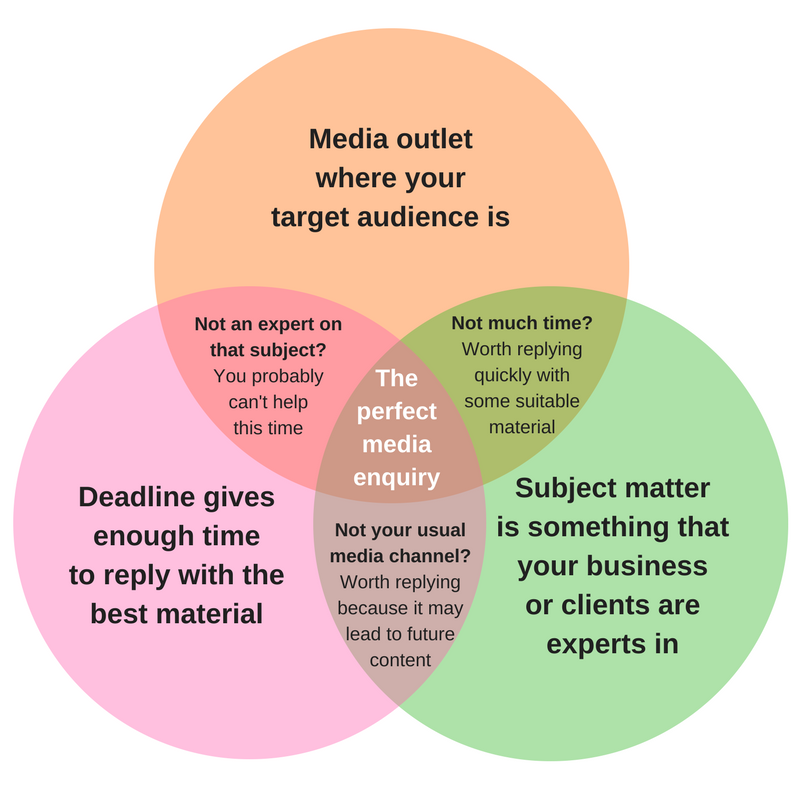Prioritising media requests

Depending on your industry, you might be inundated with suitable media requests. In some ways that’s great, in others it can feel like a tonne of work thrown at you.
You don’t want to miss out on any of the opportunities but some will definitely be more beneficial to your business than others.
If you had all the time in the world, then you probably would respond to all the suitable media requests – why miss out on the chance to get more publicity? But in reality, we’re all pushed for time and need to decide where the real opportunities are.
Although there are many factors to deciding which enquiries to prioritise, the two most important factors are:
- Whether the request is something you can comment on and that you want your business or yourself to be seen as an expert in.
- If the publication, website or blog is where your target audience will be and somewhere that aligns with your brand messaging. Think national press, trade magazines, niche websites and authoritive blogs in your industry.
Also read...

Of course there are other factors that could affect which requests you reply to first, particularly if the deadline is coming up soon.
It’s unlikely you can respond to all requests, so start off by grading them on importance and deadline. The ultimate request will be from a highly influential media outlet that reaches your target audience, with a journalist who is asking for materials that you can easily provide and on a subject that you want your business or client to be seen as an expert in.

When looking at media enquiries it’s also good to note what type of contact they have come from. Although staff journalists seem ideal, there are huge benefits in responding to freelance journalists. Due to the nature of their job, freelance journalists work with multiple media outlets and are regularly pitching to different publications. They usually have specific subject matters that they write about, so by helping them with an enquiry you could start to build a relationship with a journalist who might turn to you as a source they can trust for other stories.
Use tools like filters and keywords to only receive media requests from the media types that you want and quickly identify the most suitable media enquiries as soon as they hit your inbox.
Any other tips? Leave a comment below.

